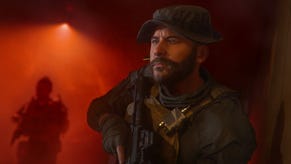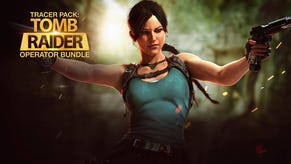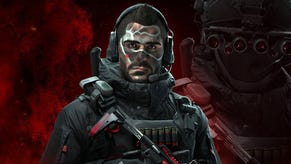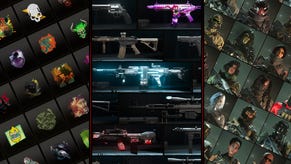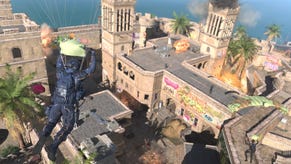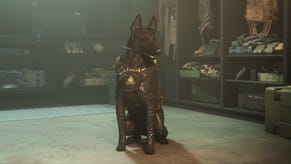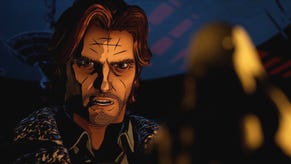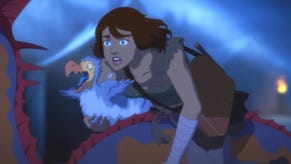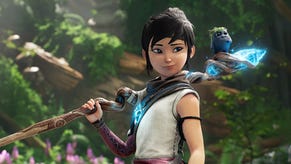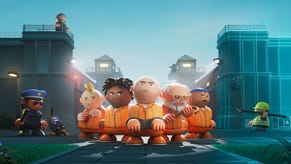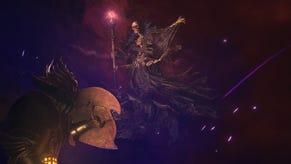BBC's The Big Questions addresses MW2
Are games damaging us, asks Campbell?
BBC presenter Nicky Campbell has hosted a debate on UK television programme The Big Questions about violent videogames and their affect on society following the historic launch of Modern Warfare 2.
Aired at 10am on Sunday, 15th November, the debating show invited experts and public alike to offer their opinions on the topic.
Miranda Suit, member of Mediamarch (a voluntary group aiming to "reduce the harmful effects of the media on our children, families and society") opened the discussion: "The role-playing element of these games makes them very, very potent... We've had a lot of anecdotal evidence from parents and teachers saying how they make children more violent."
She said "academic research" showed games - grouped under "violent media" - are making people "more violent". But, asked Campbell, this is adult entertainment, and surely we can decide what is wrong or right?
"Well no...It depends on the individual you're dealing with. If you've got a stable background you might be able to deal with it [but] then you get desensitised and you become one of the bystanders - and we know we've got a problem with bystanders," she said.
"If you're a vulnerable young person, and this is the scary bit, if you're already involved in anti-social behaviour - and you're probably the one getting hold of a game like this at the age of thirteen - it will reinforce your violent behaviour and you'll go and commit crime on the streets where you live."
Agony aunt Jenni Trent Hughes was disgusted after watching the controversial airport scene in Modern Warfare 2: "I started to cry," she recalled, "I felt sick to my stomach and I was frightened." She said she sat there with her 15 year-old son and he had to shield his face from the screen. "You and I both know - you more than I - that there's more children buying it," she added, perhaps explaining why she had shown her underage child the scene.
Alex Goldberg, Jewish Chaplain at the University of Surrey agreed: "We fudge this issue about children time and time again throughout this debate. Let's face it, it's children playing this game. "
Fazan Mohammed from the British Muslim Forum offered a shocking historical argument: "A lot of people make the excuse that this is just entertainment, but Joseph Goebbels, the propaganda minister of the Nazi Germany said, 'My entertainment did more for the German people in terms of creating this psyche for war and hostility towards other people than the speeches of Adolf Hitler'. Using this idea that this is just entertainment is no justification whatsoever." Campbell quipped that holy wars had claimed far more lives than computer games.
The microphone then passed to Giselle Pakeerah, whose son Stefan Pakeerah was brutally murdered in 2004 by a youth "obsessed" with violent videogames (Manhunt).
"The fact is that the greatest consumers of these games are between 11 and 17 and they play the games for hours on end," said Pakeerah. "And we know there's a lot of evidence - theoretical and empirical - that repetitive exposure to violent media alters a child's perception of life and how they deal with conflict resolution. That's the crux of the matter."
Professor Haim Bresheeth from the University of East London said the same videogame companies that produce titles like Modern Warfare 2 are producing "military games to train soldiers to kill" in the US and Israel. "They think it's effective - I think they're right," he stated.
Simon Jay, a community and youth worker, said the children he looks after were "hyper" after playing a violent game or watching a violent film, and would "beat" and "tackle" each other on the street. Apparently some youths went boxing for real on the streets after playing a "violent" boxing game and got hurt.
"What worries me though about this whole debate is that the fact remains: we have a system whereby these videogames should be properly censored - they've got an 18 certificate," said Right Reverend Stephen Lowe, the former bishop of Hulme, who plays World of Warcraft. He said MW2 has material that "shouldn't have got past the censor" and should have been "cut out"; regulators should have "dealt with that properly" and that is "unacceptable".
Videogames were defended by a few, and even Nicky Campbell on occasions. Some chap in a nice blue shirt said videogames are being used as a "scapegoat" in the same way people targeted films in the 1980s.
"Well, millions of people play computer games," said another, older, gentleman. "Say someone does kill someone, you have to judge that against the millions of people's enjoyment. If you want to ban cars you'll save hundreds of lives. Or ban football - you're certainly not going to have football hooligans if you get rid of football, and I've seen plenty of people get very stressed out even watching the game."
The full programme, The Big Questions - Series 2, Episode 41, can be watched on the BBC iPlayer.

